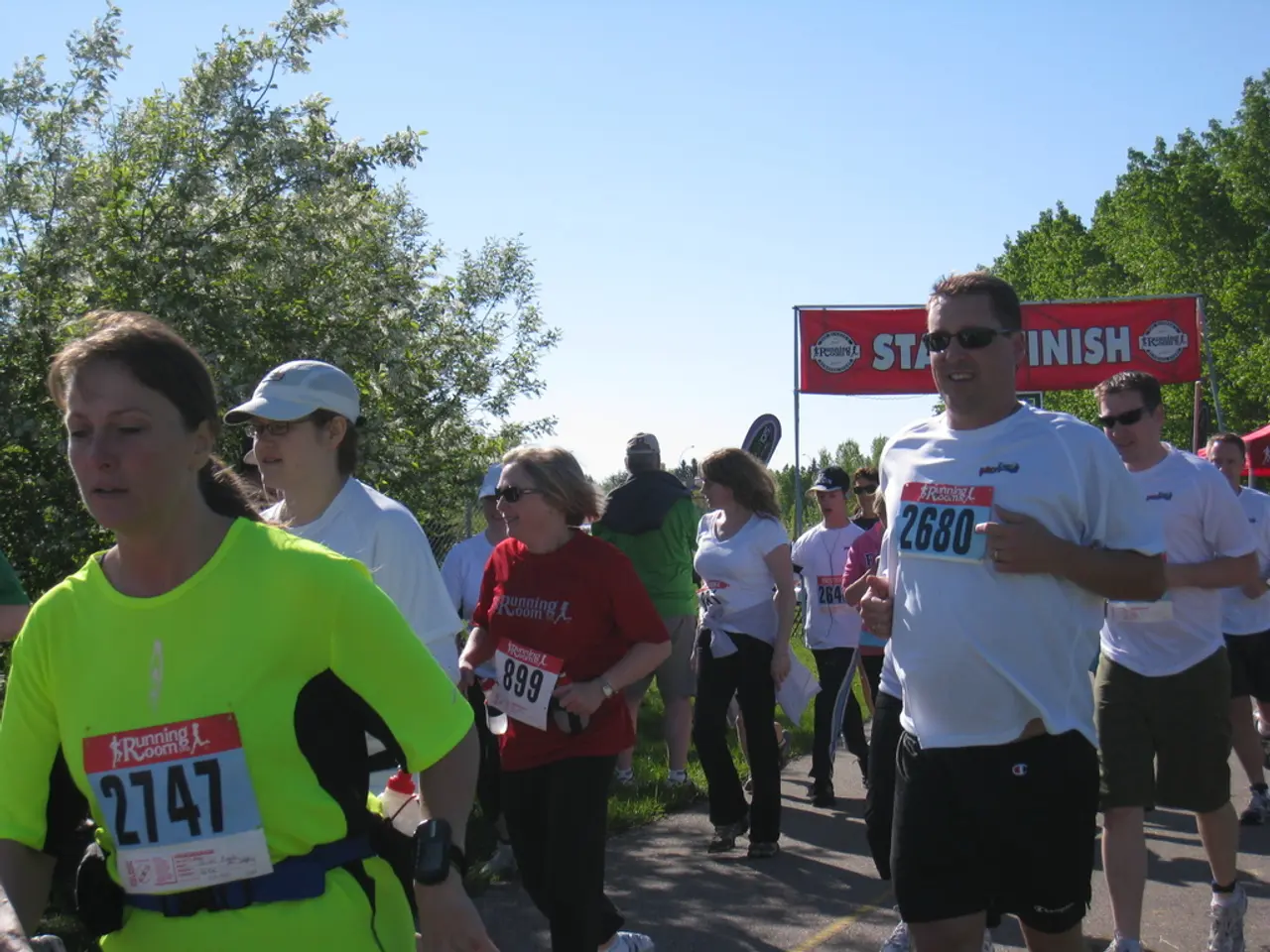Running Basics for Novices: Power through Start, Maintain Drive
For those looking to start running and make it a lifelong habit, following a practical approach can help ensure success. Here are some tips to help beginners progress gradually, maintain proper technique, set achievable goals, and integrate running into their lifestyle.
**Start with walk-run intervals** Instead of running continuously at first, alternate brisk walking with short jogging segments. This method, such as 2–3 minutes walking and 30–60 seconds jogging, builds endurance safely and reduces injury risk.
**Set achievable, realistic goals** Start with small milestones like running for 5 minutes without stopping or completing a 20-minute walk-jog session. Gradually increase your running time by about five minutes per week as you feel comfortable. Avoid comparing your progress to others and focus on personal improvement.
**Prioritize proper running form** Maintain a relaxed posture with shoulders down, back straight, and feet landing under your hips to help prevent injuries and promote efficiency.
**Run by duration rather than distance initially** Tracking runs by time (starting with 10–20 minutes) and gradually building duration is less intimidating for beginners and helps avoid fatigue.
**Incorporate running into your schedule intentionally** Treat runs like appointments in your daily planner to build consistency and make running a regular, enjoyable part of your life.
**Listen to your body and allow recovery** Pay attention to any pain or discomfort, rest adequately, and stretch after runs to prevent injuries and support long-term sustainability.
**Wear proper running shoes and care for your gear** Choosing the right footwear and maintaining it helps comfort and injury prevention. Brands like Brooks, Asics, and Nike offer reliable options for beginner runners.
**Start slow and be patient** Progressing gradually—whether distance, speed, or frequency—helps build stamina and prevents burnout or injury.
By following these guidelines, beginners can develop a sustainable running routine that fits their lifestyle, reduces injury risk, and keeps motivation high. A popular run-walk plan is Couch to 5K, which gradually increases running time over 8-12 weeks. Gradually increasing mileage by no more than 10% per week can help prevent overuse injuries.
Remember to celebrate small victories, like running the first mile or feeling stronger after a month, as they help build a habit that boosts health and confidence. Running is beneficial for improving cardiovascular health, strengthening muscles, and aiding weight management.
Post-run, refuel with protein-rich foods like Greek yogurt or a smoothie to aid muscle repair. Listening to music or podcasts during runs can make sessions more enjoyable, while connecting with other runners through local running clubs, online communities, or platforms like Reddit's r/running can provide tips and encouragement.
If persistent pain is felt during runs, rest and consult a physiotherapist to address it early. Regular running can reduce stress, boost endorphins, and enhance mental clarity. Signing up for a fun, no-pressure 5K event can provide the thrill of race day, while maintaining a balanced diet rich in carbs, protein, and healthy fats is important for fueling runs.
By starting slow, setting goals, and staying consistent, one can build a running habit that lasts a lifetime. After running, cool down with a 5-minute walk and static stretches like hamstring or calf stretches to aid recovery and prevent stiffness. Replace running shoes every 300-500 miles to maintain support. Joining a local running group or recruiting a friend can provide company during runs, and using apps like Runkeeper, Nike Run Club, or Couch to 5K can help monitor distance, pace, and calories burned.
Science plays a crucial role in optimizing fitness and health during running, as proper techniques and recovery strategies help prevent injuries and enhance performance. Health-and-wellness benefits, such as improved cardiovascular health, muscle strengthening, and stress reduction, are associated with regular running (exercise).




